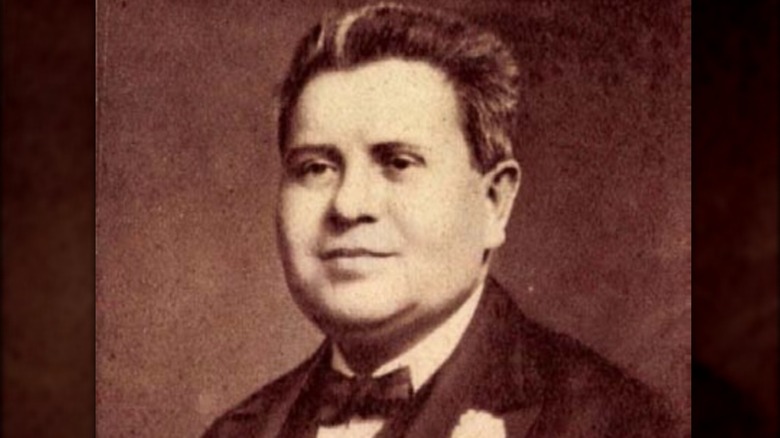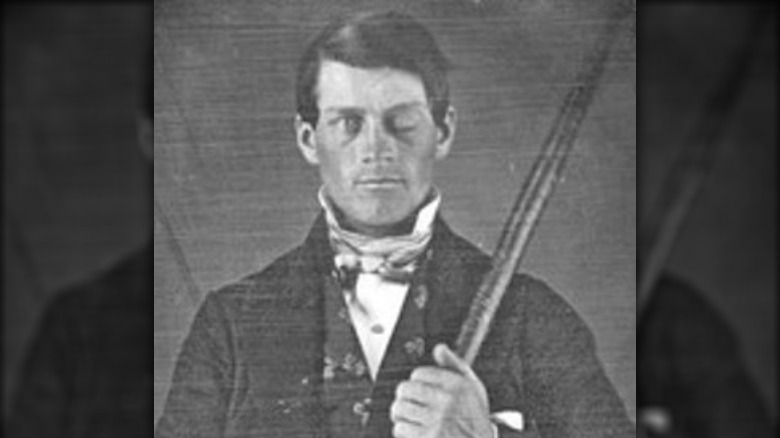This WWI Soldier Didn't Sleep For 40 Years Due To A Bizarre Brain Injury
Sleep is an important part of all sorts of bodily functions. According to the Sleep Foundation, sleep is essential for recharging both your body and mind. Most adults need around seven to nine hours of sleep per night. But what would happen if you didn't sleep for 40 years? While it may seem impossible, that is exactly what happened to Paul Kern, a Hungarian soldier who was shot in the head by a Russian bullet (via War History Online). Amazing, Kern survived the wound, but was left with some interesting side effects as a result.
Paul Kern immediately joined the Hungarian army as soon as World War I broke out. In 1915, Kern was battling Russian soldiers with his troops when he was shot in the head. According to We Are the Mighty, the bullet hit his right temple, causing him to fall unconscious. He was rushed to Lemberg hospital and treated. Amazingly, Kern recovered from his injuries. Even more amazingly, he found that he never needed to sleep again, and lived for another 40 years after the incident.
After Kern's injury, it became impossible to sleep
Once Kern recovered from the bullet wound he received in battle, things didn't exactly return to normal. At first, Kern was unaware that anything might have been wrong. It took a while for him to realize that he was unable to sleep. Not only that, but he never got tired, either. According to War History Online, he tried to force himself to sleep, but he found it more difficult than just staying awake.
As you might expect, doctors didn't believe Kern's condition was real. After all, most people eventually die if they don't get enough sleep. Kern traveled across the world to multiple doctors in order to prove his lack of sleep was real and see if anyone could treat it. Several doctors proposed theories as to what caused him to be unable to sleep. One suggested that the bullet damaged or removed the part of his brain responsible for sleep (via We Are the Mighty). One doctor wondered if he was falling asleep for only seconds at a time, a phenomenon known as microsleeping. According to the Centers for Disease Control and Prevention, those having microsleeps might appear to be awake, but their brain is not processing external information.
Paul Kern is not the only person to survive brain damage
Paul Kern is not the only person to experience changes in the brain caused by an injury. Another famous case of changes in brain function is that of Phineas Gage. Gage (above) was the foreman of a crew responsible for cutting a railroad bed in Vermont in 1848, when he was just 25 years old. He was using a rod known as a tampering iron to pack explosive powder into a hole when the powder detonated, sending the rod through his cheek and through his brain (via Smithsonian Magazine). Gage survived the accident, although blinded in his left eye.
According to The Guardian, Gage's personality changed as a result of his injury. He became angry and uninhibited, lashing out at others and behaving inappropriately in public. Psychologists believe this may have been a result of a part of his brain that was removed by the rod during his accident. Unfortunately, we don't know much about his personality before the accident, so it is hard to say exactly how much the injury affected his brain. While Paul Kern, Phineas Gage, and several others have survived traumatic damage to their brain, the outcome of these types of injuries can vary greatly depending on how they take place, so don't put yourself in a position to end up like them.


